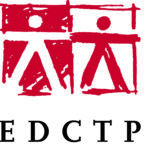Structured health data is invaluable for all stakeholders, from the individual patient, healthcare professionals (HCPs), the life science industry, and policy makers to the patient advocacy groups. There have been a few successful examples of approaches to integrate patient-reported health data into clinical care.
Specific Challenge
1. Patient outcomes and their experience of healthcare, and thus their overall care, could be improved through systematic capture of the patient voice and perspective.
2. A reward system that truly focuses on value requires measurement and transparency of patient outcomes.
3. There is a lack of models for capturing and managing patient-reported health data in an ethical and sustainable way.
Scope
The main goals are:
1. Identify appropriate standards for capturing the patient perspective when measuring health outcomes and patients’ experience of healthcare, and obtain support for these standards among relevant stakeholders.
2. Implement appropriate technology solutions (including adopting existing technology where appropriate) that would allow individual patients to record and measure their outcomes according to these standards and use the information for a more structured dialogue with their HCPs.
3. Establish the appropriate platform to collect, process and manage data in the best interest of patients, patient organisations, health authorities, healthcare professionals, the research community and health care payers.
4. Create a sustainable, socially acceptable and ethical model for the continuous collection of data and an appropriate model for providing access to the identifiable or anonymised or aggregated data to researchers with a legitimate interest in analysing them.
These goals can be achieved through the creation of health outcomes observatories in three selected disease areas: diabetes type 1 and 2, inflammatory bowel disease and cancer (side effects of chemotherapy and immune-oncology). The observatories will collect health data in at least three different European countries for each disease area.
Expected Impact
1. Enable individual patients to:
- Receive close to real-time information on their disease status.
- Hold more informed discussions with healthcare professionals about their health status and options.
- Better understand how their status compares with other patients with a similar condition.
- Share their data and help the broader patient community.
2. Allow healthcare professionals to:
- Track the evolution of their patients.
- Enable a different outcome-based conversation.
- Better inform and enhance clinical decisions based on the patient perspective.
3. Allow patient organisations to:
- Assess the status and dynamics of their patient population.
- Increase engagement with other healthcare stakeholders in evidence-based advocacy.
- Further contribute to improving the healthcare system.
4. Allow health authorities and healthcare providers to:
- Improve the quality of care through better and more transparent evidence of patient measures and outcomes.
- Drive research agendas and investments in the right areas.
- Ensure the sustainability of healthcare systems in finding ways to improve the allocation of resources.
5. Allow pharmaceutical companies and other innovative companies to use data to:
- Enable ethical utilisation of the observatory data as legally appropriate.
- Generate insights that can be used to support the design and direction of the development of new treatments.
- Generate robust evidence that can be used in submissions to regulators, health technology assessment (HTA) agencies and other decision makers.
Deadline
26 March 2020 at 17:00 Brussels time





Leave a Reply